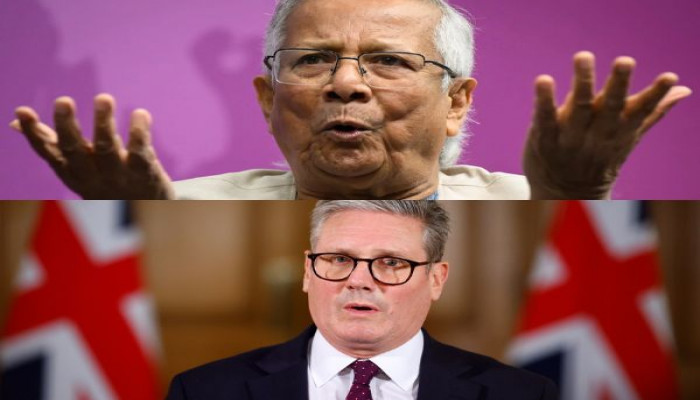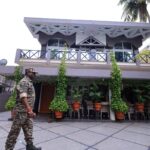Bangladesh’s interim government chief adviser, Nobel laureate Dr Muhammad Yunus, visited London to press the UK for assistance in tracing an estimated US$234 billion allegedly siphoned off during Sheikh Hasina’s 16-year premiership. He appealed directly to Prime Minister Keir Starmer, citing both legal and moral grounds for Britain’s involvement. However, Starmer declined to meet Yunus during his visit. UK officials confirmed no meeting was scheduled and declined further commentary.
Yunus, who now heads the caretaker administration following a student-led uprising that removed Hasina from power last August, described the funds as “stolen” and largely transferred to overseas jurisdictions including the UK, Canada, Singapore, the Middle East and Caribbean states. While acknowledging that UK law enforcement is “already providing assistance,” Yunus insisted that Britain’s obligation extends beyond passive co‑operation to active, enthusiastic support.
He repeatedly expressed confidence that Starmer would back Bangladesh’s asset recovery plans, stating: “I have no doubt he will support Bangladesh’s efforts.” But as of his departure from London, no direct dialogue had taken place between the two leaders.
The lack of political engagement has drawn scrutiny in light of Labour MP Tulip Siddiq’s recent resignation from her anti‑corruption portfolio in January. Siddiq, Sheikh Hasina’s niece and a close Starmer ally, stepped down amid allegations she received material support—namely property—from individuals linked to the Awami League; she denies any wrongdoing. Following Yunus’s London campaign, Siddiq wrote to him seeking a meeting to “clear up the misunderstanding” propagated by Bangladesh’s Anti‑Corruption Commission. Yunus declined, characterising the matter as a purely legal process, not a personal appeal.
Yunus described the financial exodus under Hasina as having involved a “massive looting process,” accusing some relatives and associates of diverting state resources abroad. Bangladesh investigators have traced significant capital flows, estimating around $234 billion moved offshore during her tenure. In London, the National Crime Agency obtained freezing orders on two properties linked to a Hasina associate’s son, indicating official action within the UK.
Yunus was explicit that this visit was merely the beginning of a global asset‑tracing initiative. He signalled forthcoming missions to attract cooperation from governments, intelligence agencies, law enforcement, businesses and financial institutions around the world. During his London engagement, Yunus met with a spectrum of UK stakeholders, though he did not specify which sectors or individuals participated. He asserted that recovering Pakistan’s ill-gotten gains would hinge on broad-based support from “the people of Great Britain,” as well as official cooperation.
Analysts suggest Starmer’s refusal to meet Yunus likely reflects political caution. Labour’s links to Siddiq—and by extension the Hasina family—risk complicating the party’s image on corruption. Hosting Yunus could be construed as tacit approval of Bangladesh’s anti‑Hasina purge, a politically fraught association ahead of next year’s general election. For Starmer, balancing co‑operation on asset recovery with maintaining political neutrality may have informed the decision to decline.
Diplomatic protocols also present a challenge. Support for asset recovery often involves intricate legal frameworks and multi‑agency co‑ordination; a prime‑ministerial meeting could raise expectations beyond what UK authorities are prepared to offer, particularly given the ongoing freezing orders and undeclared investigations already under way.
Bangladesh’s interim government continues its efforts. Yunus affirmed that investigations remain within the bounds of international legal compliance. By highlighting the freezing orders and legal measures, he aimed to demonstrate progress and transparency in the recovery initiative.
As the caretaker government pursues its mandate ahead of elections, asset recovery has become a headline‑dominating priority. The $234 billion figure—if even partly verified—would rank among the largest reconstructions of corrupt finance in history. The UK’s legal and financial systems appear central to the campaign, raising questions about potential asset disclosures in other Western jurisdictions.



 Ballari Politicians Targeted in Money-Laundering Probe
Ballari Politicians Targeted in Money-Laundering Probe 